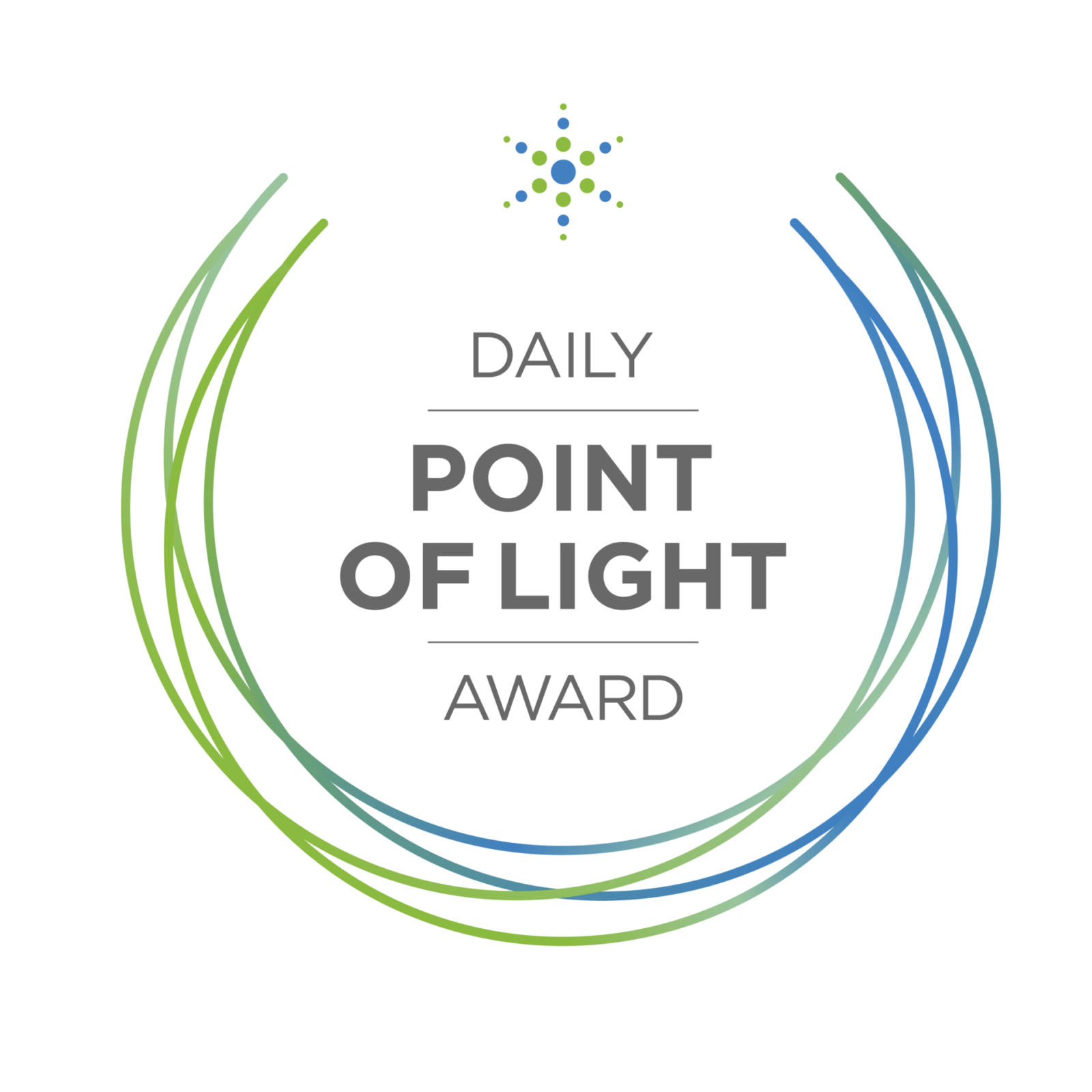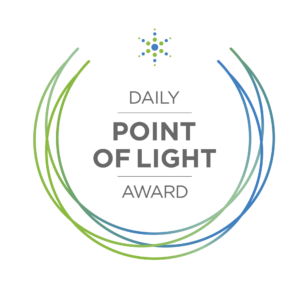High School Senior Brings Community to Seniors Both Online and In-Person


Meet Daily Point of Light Award honoree Catherine Bai. Read her story and nominate an outstanding volunteer or family as a Daily Point of Light.
Catherine Bai, a 16-year-old high school senior, started volunteering in nursing homes four years ago. Moved to help people with memory issues after seeing her grandmother battling Alzheimer’s, she started putting on flute and piano performances to bring a smile to their face. When the pandemic hit, she quickly noticed the isolation of the most vulnerable and decided to organize virtual performances until she discovered many elderly care facilities lacked the equipment necessary to connect.
That was the birth of the homemade mask drive during which Catherine and her fellow volunteers raised over $1,000 in just two months. With the funds, they were able to donate multiple Wi-Fi-enabled devices and a robotic companion pet as well as all of their unsold masks. Then, she started the Adopt a Senior program to further establish relationships between volunteers and residents of care homes. Over the last four years, her group has performed at seven nursing homes, has over 100 volunteers and, at Catherine’s initiative, moved under the umbrella of the new Pearland branch of We Care Act.
As she applies to colleges, this future engineer has her eye on a career designing spaceships and rockets with cutting-edge technology. At the same time, she reflects upon how much earlier generations sacrificed to get where we are today. In an ever-changing world, Catherine remembers the past and looks to the future while making a difference in the present.
What inspires you to volunteer?
Volunteering and serving your community is about helping others. I’m very lucky to have grown up in the circumstances I grew up in, to have had all these opportunities, and I know that many others are less fortunate. They need some extra help.
My music community service was inspired by my grandmother who lives in China. Over 10 years ago she started showing symptoms of Alzheimer’s disease and rapidly worsened. She couldn’t talk or move and couldn’t recognize her own family.
One day in eighth grade, my mom was video calling her, and I remember seeing her like that, and it broke my heart. I did some research and found that music is extremely effective in helping people with Alzheimer’s, especially older adults. I was also in band. So, I contacted a local nursing home, and they were more than happy to receive me. I started playing there on my own, which was scary for 12-year-old.
Tell me about your role.
In the beginning, I contacted senior homes, arranged music, and played on my own. Then, we started getting more people to help out. And now, since I’ve established a formal organization, it’s become a chapter of a national nonprofit student volunteer organization, We Care Act. Several younger members and underclassmen have started aiding me and organizing rehearsals and performances, recruiting members, finding in arranging specific music, etc.
My music program, Music to Cure, is now one of We Care Act’s projects. Each project is led by an officer who is personally invested. Two of us run the music program, but we all participate with each other’s projects and help out where we can.
We also started Adopt a Senior to go beyond just performing music. It includes a kind of pen pal system where we get very close with selected residents. We’re assigned a friendship role, but those labels disappear over time. We talk with them and help them out. We also help the senior home with general duties or decorating and many more activities.
What do you play?
When I got to high school and started getting more invested in this project, I invited a music therapist to train me and other friends that I essentially roped in. She gave us amazing advice on selecting songs–not only specific time periods, but also genres and moods–and how to get the audience engaged with us.
What’s been the most rewarding part of your work?
It’s seeing in person and in real time, how I affect others, even if it’s just one person in the audience. At one of the senior homes we frequently visit, there’s a resident who is slightly aggressive. Then, when we start playing, I can see him visibly relax and quiet down. That’s what keeps me doing this, even when it’s difficult.
What have you learned through your experiences as a volunteer?
I’ve learned several technical skills, such as arranging music and scheduling, but more importantly, I’ve learned how to work with and lead others.
How can people support seniors who don’t have your organization in town?
I started with music was because it was very accessible to me, and I know that it’s accessible to almost everyone. Just playing songs they recognize on your phone and singing along and getting people moving to the rhythm touches the part of the brain that hasn’t been negatively affected by Alzheimer’s or age. It’s essentially a treatment.
Why do you think it’s important for others to give back?
We can all use a little bit of loving, and whenever I am in a more fortunate position, I can help others who need it. It not only helps them but it helps me, too. I can grow from these experiences, and I get to go out there and meet new people and do new things. I’ve learned a lot of lessons I wouldn’t have otherwise gotten had I not done community service.
Giving back to my community has really shaped my perspective in a positive way. I didn’t know my grandparents well, and I wasn’t close with any older adults, so I never knew their ailments or their difficulties. Starting to volunteer to play for them, talk with them, and see them in their daily lives, really opened my eyes to what they go through every day. The older population have given a lot for us, and it’s comforting to know that I can give back to these people who have sacrificed so much.
Do you want to make a difference in your community like Catherine? Find local volunteer opportunities.
